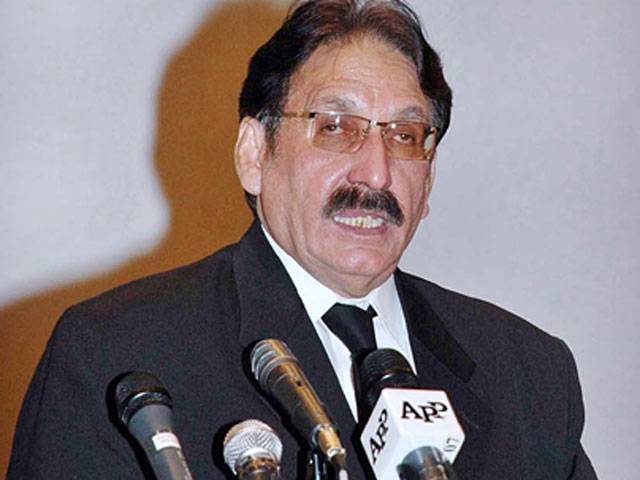KARACHI (Agencies) - Chief Justice of Pakistan Justice Iftikhar Muhammad Chaudhry at a high-level meeting Saturday expressed his dissatisfaction over the slow disposal of cases in ATCs in Sindh.
According to a press release issued here, the meeting chaired by the chief justice was held at the Supreme Court Karachi Registry, to review the performance of ATCs in the province of Sindh and the role of prosecution and investigation agencies in quick disposal of cases.
The chief justice expressed his dissatisfaction over the slow disposal of cases in the anti-terrorism courts, the delay in submission of challans and the frequent adjournments being sought and granted to the prosecuting and defence counsel.
The CJP observed that as per the judgment in the Sheikh Liaquat Hussain case, the Supreme Court set up a mechanism for monitoring the performance of the ATCs to decide such cases quickly.
The mechanism is meant to remove handicaps or irritants in the way of expeditious disposal of cases.
The CJP stated that the menace of terrorism was also came up for consideration before the five members bench in the suo moto case regarding law and order in Karachi and the court issued categorical directions to the police as well as the Rangers DG for the arrest of the culprits and timely investigation in the cases and their effective prosecution to punish the guilty.
He exhorted the security agencies to follow the direction given by the court in the Karachi violence case to the effect that there must not be any no-go area.
The court order had further stated that the law enforcement operations shall be carried out across the board and without any pressure or influence from any quarters, he added.
The Sindh High Court Chief Justice and the Incharge Judge of ATCs presented facts and figures in respect of the anti-terrorism courts in the meeting.
The figure indicates that there are 1,124 terrorism cases pending before the 11 ATCs in the province of Sindh out of which some 323 cases are pending in Karachi alone.
The meeting was informed that that ATCs had became more functional following appointments of more judges and assured that the cases’ disposal figure would improve.
During the course of discussion, it was pointed out that the anti-terrorism courts are deciding cases but the deterrent fact of law is missing on account of pending mercy petitions of the convicts by the Executive. It was reported that since the year 1998 some 30 convicts under the Anti-Terrorism Act and 4 convicts under the ordinary laws, are awaiting execution. On account of this unusual delay in execution, the deterrent effect of the law is missing.
The Attorney General for Pakistan undertook the task to look into the matter and expeditiously decide the mercy petitions, so that the course of administration of justice is not impeded.
Meanwhile, Supreme Court Chief Justice Iftikhar Muhammad Chaudhry who arrived in Karachi on Saturday reviewed the steps taken to improve the security situation of the City in the light of Apex Court’s judgment about target killings. Supreme Court took suo moto notice of target killings in Karachi and a five-member bench gave verdict after hearing the case in the City for two weeks. According to the verdict, the court had ordered the Chief Justice of Sindh High Court (SHC) to arrange monthly meetings with the police, Rangers and concerned government officials to review the steps taken to improve security situation in the City.
Sources told INP that Chief Justice Iftikhar Muhammad Chaudhry reviewed steps taken on the orders of SHC Chief Justice in Saturday’s meeting.
Saturday, April 20, 2024
Chief Justice dissatisfied with ATCs’ disposal rate

Pak economy improving, funds will be provided on request: IMF
9:57 PM | April 19, 2024
Minister advocates for IT growth with public-private collaboration
9:57 PM | April 19, 2024
Judges' letter: IHC seeks suggestions from all judges
9:55 PM | April 19, 2024
Formula 1 returns to China for Round 5
9:05 PM | April 19, 2024
Germany head coach Julian Nagelsmann extends contract till 2026 World Cup
9:00 PM | April 19, 2024
A Tense Neighbourhood
April 19, 2024
Dubai Underwater
April 19, 2024
X Debate Continues
April 19, 2024
Hepatitis Challenge
April 18, 2024
IMF Predictions
April 18, 2024
Kite tragedy
April 19, 2024
Discipline dilemma
April 19, 2024
Urgent plea
April 19, 2024
Justice denied
April 18, 2024
AI dilemmas unveiled
April 18, 2024
ePaper - Nawaiwaqt
Advertisement
Nawaiwaqt Group | Copyright © 2024





